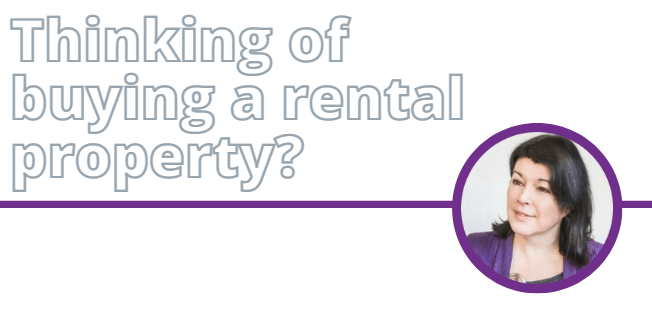There’s a lot to consider, whether you’re thinking of buying one or just a few properties or your aim is to build a sizeable property portfolio. Here’s a summary of what you need to know before you take the plunge. As always, no blog can cover everything you need to think about, so do ring us if you want to have a chat about your specific plans.
A big decision is whether to trade through a limited company or as a sole trader? There is usually no easy answer and before you decide, you need to consider a number of factors:
Do you envisage owning just one property or are you hoping to acquire several or many?
Do you intend to take out any profits as they arise or do you hope to save the profits, to take later or to reinvest in more property?
Will you need to borrow money to fund your property purchase?
If you buy property as a sole trader:
You will pay income tax on rental profits, (rental income less any expenses and allowances) regardless of whether or not you spend those profits. The rate of tax on profits will be 20%, 40% or a higher rate, dependent on your other income.
In arriving at the amount of rental profit, you can claim tax relief on mortgage/loan interest (not the capital) but tax relief is restricted to the basic rate of tax (20%).
You will need to complete an annual self-assessment tax return which will include your profits from rental income. If you make a loss in a tax year, you can carry that loss forward to offset future profits from rental income
If you sell your property, you will pay capital gains tax on the gain (calculated as the difference between net sales value and net purchase cost.) An individual is entitled to a capital gains tax-free allowance of £12,300 in 2022/23, so this is deducted from the gain if you’ve not used it against other gains. You will pay tax on the remaining gain at 18% or 28% depending on your other income.
You can own property jointly with others and you will be taxed on your share of the profits.
If you set up a limited company to buy property:
You will almost certainly need to set up your company as a special purpose vehicle, in order that lenders will lend to your company. That isn’t complicated, but it’s good to set the company up properly from the start.
Any property which the company buys is owned by the company, not the individual – but the shareholders own the company. You can be the sole shareholder of the company or there can be more than one shareholder.
The company will pay corporation tax on rental profits. Mortgage interest can be deducted when calculating taxable profits. Corporation tax is currently at 19%.
If the company sells a property, it will pay corporation tax on the capital gain. A company is not entitled to a capital gains tax-free allowance.
You as a shareholder will be entitled to take cash from the business as a dividend/pension contribution and/or salary. Dividend and salary are taxable on you personally in the tax year you take it. If you don’t take money from the company, you will not be taxed, but the company will still pay corporation tax on any profits. Profits not taken out by the shareholders are retained within the company and can be taken at a future date or retained in the company to reinvest in more property.
A limited company has to prepare and submit formal accounts for shareholders each year and submit these to Companies House and to HMRC with a corporation tax computation. Accountancy costs for a limited company tend to be slightly higher than for a sole trader.
Some other points:
Being a landlord isn’t always straightforward and you need to consider if you are prepared for the inevitable ups and downs, dramas (and sometimes losses) that being a landlord can bring. These might be minimised by using a management company to find tenants, deal with collection of rent and maintenance of the property, but there is a cost for this.
If things go wrong, you might find yourself with no rent for several months, which will be a problem if you’re relying on the rental income to pay the mortgage.
If you need a mortgage, you’ll likely need a decent amount of cash to put down as a deposit – usually at least 25% of the property value and often much more.
If you put money into the company, maybe for a deposit, this will be treated as a loan and can be repaid to you as funds allow.
You must tell your mortgage lender that you intend to let the property, not live in it yourself. Lenders consider buy-to-let mortgages to be riskier than standard residential mortgages.
When making a property purchase, your solicitor and any lender will need to know early on whether it’s you or a limited company who will be owning the property
The stamp duty surcharge of 3% applies to individuals and limited companies For individuals, it only applies to the second property bought (including your home)
If you intend to own just one rental property, it might be more cost-effective to own the property in your own name or in a partnership. If you intend to build a portfolio of properties, you might prefer to own them in a limited company.
If you want to discuss how any of the above might impact your situation, please ring us on 01942 760500 or email info@hulljady.co.uk

